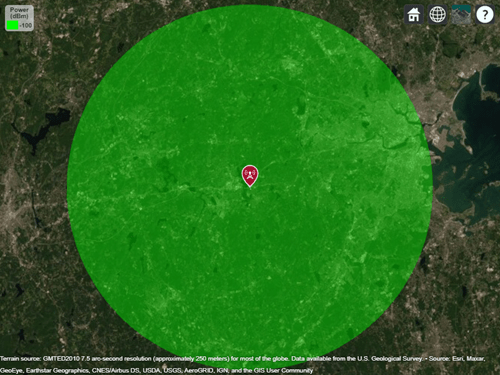Fog
霧伝播モデル
説明
Fog オブジェクトを使用して、伝送点からの電磁放射が霧や雲の中を伝わるときの挙動をモデル化します。モデルの詳細については、[1]を参照してください。霧伝播モデルは、10 ~ 1000 GHz で有効で、見通し内 (LOS) 条件を想定し、地形、地球の湾曲、およびその他の障害物を無視します。
作成
関数 propagationModel を使用して Fog オブジェクトを作成します。
プロパティ
例
参照
[1] International Telecommunications Union Radiocommunication Sector. Attenuation due to clouds and fog. Recommendation P.840-6. ITU-R, approved September 30, 2013. https://www.itu.int/rec/R-REC-P.840/en.
[2] Seybold, John S. Introduction to RF Propagation. Hoboken, N.J: Wiley, 2005.
バージョン履歴
R2017b で導入
